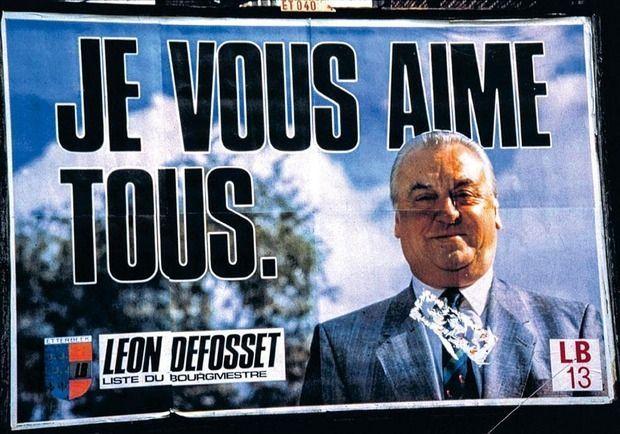Post by timrollpickering on Dec 25, 2017 1:11:39 GMT
One of these could happen soon:
royalcentral.co.uk/europe/romania/the-romanian-government-considering-referendum-to-re-establish-monarchy-93724
This would suggest that the line of succession proposed will be to abolish Salic Law and install Margareta, per Michael's wishes. As I said on another thread:
 The Romanian succession was under Salic law and as I understand it the line has reached extinction as Michael was the last undisputed legitimate male in the line.
The Romanian succession was under Salic law and as I understand it the line has reached extinction as Michael was the last undisputed legitimate male in the line.
The pretendership now scatters in multiple directions:
The 1923 Romanian constitution gave the last monarch in the line the right to nominate a successor but I think they're restricted to the House of Hohenzollern-Sigmaringen and the parliament would have to ratify it.
* Michael nominated his daughter Margareta in 2007 and asked that if the monarchy were restored the succession law would be changed to allow female succession. However there's no legal instrument backing this up.
* Ferdinand I (Michael's grandfather) inherited the throne because his elder brother William renounced his right to the succession in 1886. Subsequently William married and had sons, with about ten male line descendants alive today. Karl Friedrich is the senior in line and head of the House of Hohenzollern-Sigmaringen, and presumably the natural Salic law choice under the 1923 constitution. He is disinterested in a restoration.
* Paul-Philippe Hohenzollern, also known as Paul Lambrino, is the male-line grandson of Carol II (Michael's father) from his first marriage which was annulled by the courts before the birth of Mircea Carol Lambrino, Paul's father. Courts in Portugal and Spain in the 1950s and Romania in the 1990s have ruled Carol a legitimate son but have no bearing on whether the marriage was morganatic or not. Paul claims the head of the house of Romania but isn't interested in restoring the monarchy - a sign of the confusion that comes when pretenders claim the pretendership but not the throne.
In practice I suspect Margareta will be treated as the pretender/heir to Michael by the Romanian government insofar as dealing with residual legacy matters connected to the monarchy. The head of the house will be left to squabbling cousins, as has happened with other abolished thrones.
In a lot of the ex-Royal families there's little active seeking of a restoration but cousins still dispute the succession insofar as it covers the head of the house and various legacy matters including who gets any special state pensions and claims on the reversion of property. Amongst abolished European thrones I think only Bulgaria (the ex king is still alive), Greece (ditto) and Austra-Hungary (the last Crown Prince died only a few years ago and his son's inheritance is undisputed) have completely avoided these squabbles.
Of course it's one thing for a pretender to disavow any interest in restoring the monarchy when it's a dead issue; it's another thing when the issue comes back to life...
royalcentral.co.uk/europe/romania/the-romanian-government-considering-referendum-to-re-establish-monarchy-93724
The Romanian government considering referendum to re-establish monarchy
The Romanian parliament has now initiated a process in which they will consider holding a referendum on re-introducing a constitutional monarch as the country’s new form of government. This was reported earlier this week by Romanian Insider.
It is the two leaders of the current Romanian government who have initiated the process. They are Niculae Bădălău, the executive president of the Social Democrat Party and Călin Popescu-Tăriceanu from the Alliance of Liberals and Democrats.
The self-proclaimed Republican, Niculae Bădălăsaidif, according to the Romanian Insider said that the Romanian people need to be asked if they want to live in a republic or a monarchy. Bădălău's stated his position saying: "The politicians, together with the president and very many other factors should sit down and discuss the monarchy."
"I think the people should be asked. It is not a bad thing, since countries with monarchy is some of the most peaceful and prosperous nations the world has," said Bădălău. He added, "It should be discussed, especially since we have seen in the media that there are already many sympathizers."
This discussion flared up after King Michael of Romania died earlier this month. His daughter was then appointed as Head of the House of Romania. Thousands of royalists poured into the streets to attend the monarch's funeral, alongside representatives of many European and international royal houses, including the Prince of Wales, former King Juan Carlos and Queen Sofía of Spain, and King Carl XVI Gustaf of Sweden and his wife Queen Silvia.
In a speech to Parliament after her father's death, Her Majesty Margareta, Custodian of the Crown said: "A new time starts for my Family and for the Royal House of Romania. Inspired by the same sentiments as my father, I will continue his work, for the fulfilment of our mission towards the Romanian people".
Then-Princess Margareta was born on 26 March 1949 as the eldest child of King Michael and Queen Anne in Lausanne, Switzerland. She has four younger sisters: Princess Elena, Princess Irina, Princess Sophie and Princess Maria. Romania was a constitutional monarchy from 1881 until 1947, when King Michael was forced to abdicate. An authoritarian communist dictatorship replaced the monarchy.
The Romanian parliament has now initiated a process in which they will consider holding a referendum on re-introducing a constitutional monarch as the country’s new form of government. This was reported earlier this week by Romanian Insider.
It is the two leaders of the current Romanian government who have initiated the process. They are Niculae Bădălău, the executive president of the Social Democrat Party and Călin Popescu-Tăriceanu from the Alliance of Liberals and Democrats.
The self-proclaimed Republican, Niculae Bădălăsaidif, according to the Romanian Insider said that the Romanian people need to be asked if they want to live in a republic or a monarchy. Bădălău's stated his position saying: "The politicians, together with the president and very many other factors should sit down and discuss the monarchy."
"I think the people should be asked. It is not a bad thing, since countries with monarchy is some of the most peaceful and prosperous nations the world has," said Bădălău. He added, "It should be discussed, especially since we have seen in the media that there are already many sympathizers."
This discussion flared up after King Michael of Romania died earlier this month. His daughter was then appointed as Head of the House of Romania. Thousands of royalists poured into the streets to attend the monarch's funeral, alongside representatives of many European and international royal houses, including the Prince of Wales, former King Juan Carlos and Queen Sofía of Spain, and King Carl XVI Gustaf of Sweden and his wife Queen Silvia.
In a speech to Parliament after her father's death, Her Majesty Margareta, Custodian of the Crown said: "A new time starts for my Family and for the Royal House of Romania. Inspired by the same sentiments as my father, I will continue his work, for the fulfilment of our mission towards the Romanian people".
Then-Princess Margareta was born on 26 March 1949 as the eldest child of King Michael and Queen Anne in Lausanne, Switzerland. She has four younger sisters: Princess Elena, Princess Irina, Princess Sophie and Princess Maria. Romania was a constitutional monarchy from 1881 until 1947, when King Michael was forced to abdicate. An authoritarian communist dictatorship replaced the monarchy.
This would suggest that the line of succession proposed will be to abolish Salic Law and install Margareta, per Michael's wishes. As I said on another thread:
The pretendership now scatters in multiple directions:
The 1923 Romanian constitution gave the last monarch in the line the right to nominate a successor but I think they're restricted to the House of Hohenzollern-Sigmaringen and the parliament would have to ratify it.
* Michael nominated his daughter Margareta in 2007 and asked that if the monarchy were restored the succession law would be changed to allow female succession. However there's no legal instrument backing this up.
* Ferdinand I (Michael's grandfather) inherited the throne because his elder brother William renounced his right to the succession in 1886. Subsequently William married and had sons, with about ten male line descendants alive today. Karl Friedrich is the senior in line and head of the House of Hohenzollern-Sigmaringen, and presumably the natural Salic law choice under the 1923 constitution. He is disinterested in a restoration.
* Paul-Philippe Hohenzollern, also known as Paul Lambrino, is the male-line grandson of Carol II (Michael's father) from his first marriage which was annulled by the courts before the birth of Mircea Carol Lambrino, Paul's father. Courts in Portugal and Spain in the 1950s and Romania in the 1990s have ruled Carol a legitimate son but have no bearing on whether the marriage was morganatic or not. Paul claims the head of the house of Romania but isn't interested in restoring the monarchy - a sign of the confusion that comes when pretenders claim the pretendership but not the throne.
In practice I suspect Margareta will be treated as the pretender/heir to Michael by the Romanian government insofar as dealing with residual legacy matters connected to the monarchy. The head of the house will be left to squabbling cousins, as has happened with other abolished thrones.
In a lot of the ex-Royal families there's little active seeking of a restoration but cousins still dispute the succession insofar as it covers the head of the house and various legacy matters including who gets any special state pensions and claims on the reversion of property. Amongst abolished European thrones I think only Bulgaria (the ex king is still alive), Greece (ditto) and Austra-Hungary (the last Crown Prince died only a few years ago and his son's inheritance is undisputed) have completely avoided these squabbles.
Of course it's one thing for a pretender to disavow any interest in restoring the monarchy when it's a dead issue; it's another thing when the issue comes back to life...

